‘Shocked’, was the word Spotswood High School senior Chloe Leach used to describe when she learned that 57 books have been banned in her school district, the Rockingham County Public Schools (RCPS). She knew immediately that she had to take action.
Leach along with other students created an organization named ‘For The Books’ to stand up against the banning. The organization has been working on social media to spread awareness about each of the books, posting informational infographics created by other students in the district.
“If so few people want to take action and stand up for a decision that is directly affecting their education, then why not? No one else is going to do it…I personally will do it. I’m going to be a political science major, so it’s kind of my thing. I want to help people who are younger than me fully understand the situation, which I thought would be very beneficial for the success of our schools,” Leach said.
She was in attendance at the first school board meeting of the year, and also the one where they announced the banning of the 57 books. Leach insisted that the school board members did not have a fair way of reviewing the books before banning them.
“There’s no doubt in my mind that when they picked the books, they searched up 57 gay books and people of color, there is no doubt in my mind, with the backgrounds that the people on our school boards have,” Leach said.
Leach criticized the behaviors of the school board members, naming one of the members, Hollie Cave, the representative of District 5, Elkton, VA.
“Hollie Cave homeschools her children, how would she know? The fact that some of the book titles were spelled incorrectly, really showed me that they did not do the research on their topic,” Leach said. “They supposedly care about children when taking away things that would make them feel normal, taking that away is putting children’s mental health at risk, they pretend they care about their mental health when they clearly do not.”
Leach criticizes another school board member’s behavior during the allotted time for the public to give speeches.
“Think before you speak, learn some professionalism, seeing school board members laughing at people who are having an emotional reaction towards the banning, was disheartening,” Leach said.
Asking students about their opinions regarding the book ban was important to Leach instead of making this decision without interacting with students first.
“If you’re on the school board, you are representing kids, ask kids,”
— Chloe Leach
“If you’re on the school board, you are representing kids, ask kids,” Leach said. “All the kids do not agree with you, they’re all like, ‘I want to read these books, I understand that they might not be to your approval but at this point, it’s my choice what I want to read’.”
The Rockingham County Public (RCPS) school board held the second school board meeting, Jan. 22 after the meeting where they announced the banning of 57 books.
23 minutes into the meeting, the floor was opened for public comments. Every speech given by the public addressed the book banning.
One particular speech was from Kelsey Lawrence, from Warren County, VA. She had addressed other book bans and helped communities defer them.
“I was genuinely thrilled to learn that in this county there’s an option to opt in or opt out when it comes to library books, but my excitement was short-lived when I discovered that despite this seemingly reasonable setup Rockingham County school board made the decision to remove not one, not two but 57 books from the shelves. Well, let’s correct that to 50 because apparently seven of them aren’t even on the shelves. Bravo, Rockingham School Board. You have reached a level of craziness that is genuinely unique,” Lawrence said.
Lawrence spoke with emotion to the school board members, emphasizing the oddness of the ban.
“In my experience helping communities fight bans, this is the first time I’ve encountered such a peculiar case, you have proven that we need not worry about co-parenting with the government because, let’s face it, there’s nothing cooperative about this decision, you’re taking the entire parenting role when it comes to our children, and what our children can and cannot read. This is an example of gross government overreach. You’ve made a blanket decision for every family in the district,” Lawrence said.
She addressed the importance of one of the books that were banned, ‘13 Reasons Why’ by Jay Asher.
“At 14, I had no personal experience with suicidality, but this book opened my eyes to the struggles people face. It fundamentally altered my relationships, making me aware that others carry thoughts of ending their own lives. I started treating conversations as if they could be our last because sometimes they are. As a self-absorbed 14-year-old, this book was exactly what I needed. I will be forever grateful that my friend recommended it, and that my library had it and it allowed me the freedom to check it out. So let’s be clear. It’s more than just books you’re banning. You’re banning life-changing experiences that allow us to see each other more clearly,” Lawrence said.
In her last words addressing the six members present at the meeting, Lawrence said “shame on you,” before walking off.
The National Coalition Against Censorship is an organization founded in 1974 with a mission of “envision an American society that understands, values, defends, and vigorously exercises free expression in a just, egalitarian, diverse, and inclusive democracy.”
In reaction to the banned books the organization wrote a letter to RCPS, Jan.19, titling it ” ROCKINGHAM COUNTY PUBLIC SCHOOLS IN VIRGINIA TEMPORARILY REMOVES 57 BOOKS FROM SCHOOL LIBRARIES WITHOUT FOLLOWING POLICY PROCEDURES.”
The letter was signed by Christine Emeran, Youth Free Expression Program Director National Coalition Against Censorship, and cosigned by the American Booksellers for Free Expression, The Authors Guild Children’s and Young Adult Books Committee, PEN America National Council of Teachers of English Society of Children’s Book Writers and Illustrators.
The letter addresses the failure to follow policy and concerns of discrimination in the choice of book lists with themes of LGBTQ+ and race.
“We urge the District to return these books to the shelves until it amends its policies to ensure that all challenges are resolved pursuant to its adjudication procedures,” the letter said.
AUTHOR PERSPECTIVE
When Ellen Hopkins wrote her trilogy ‘Crank’, inspired by her daughter’s meth addiction, she was hoping to spread awareness to stop teens from falling into the same path her daughter had gone down, now she is faced with being the most banned author in the 2022-2023 school year.
Seven out of the 57 banned books are by Hopkins. She is a novelist and a New York Times best-selling author. Her book, ‘Tricks’ has been the most banned according to PEN America, which has been banned 33 times.
“They are banning me as an author,” Hopkins said. “The drive behind that is not just concern for kids, the drive behind that is actually weakening, or dismantling public school education,” Hopkins said. “‘Crank’ is inspired by my daughter’s story of meth addiction. She was the perfect kid that you never would have expected to go there, straight A+ kid. She went to church, we went camping and fishing, we’re an upper-middle-class family and she met the wrong guy. She lost her dreams,” Hopkins said.
After getting addicted it took Hopkins daughter 25 years to quit and another couple of years to build her life back, she knew writing the book prevention was her goal.
“I’ve gotten over the years, I’m not exaggerating, literally 1000s of messages, emails, handwritten letters, notes, from kids, thanking me for either turning them off that path or for giving them insight into a parent’s or another loved one’s addiction.”
— Ellen Hopkins
“I’ve gotten over the years, I’m not exaggerating, literally 1000s of messages, emails, handwritten letters, notes, from kids, thanking me for either turning them off that path or for giving them insight into a parent’s or another loved one’s addiction,” Hopkins said.
Hopkins published her first book in 2004, and over the years she has made many school visits and appearances, one incident stands out.
“She was 13, she came up to me, she said, ‘God sent you to me today because I was supposed to go meet my sister and her boyfriend after school to do meth’, and then she decided not to,” Hopkins said. “Those are very direct, honest messages from kids telling me that this book made them make better choices and or help them understand why they lost a parent to drugs.”
The books have constantly been criticized for including sensitive topics that may be deemed inappropriate for young adults, but for Hopkins, the books were there to challenge readers.
“They’re not easy reads, but they’re not supposed to be. I write for adults, I also write middle grade. I know the difference in audience. I write with an audience of mind,” Hopkins said.
The choice of whether a book is read by teenagers, according to Hopkins, should not be up to the school board.
“That’s your job as a parent to make those decisions. It’s not anybody else’s job to make decisions for my kid, what’s appropriate or what’s not.” Hopkins said.
THE INVISIBLE BOY
Brian is a student in a classroom filled with loud and extroverted students. Brian is introverted and has a hard time speaking up and finding friends. Soon, with the help of a new student, Justin, he learns to make friends and break through the invisibility that his classmates have set him in. This is the story of ‘The Invisible Boy’ by Trudy Ludwig.
The book was one of the 57 banned books by RCPS.
Hearing her book was banned, Ludwig couldn’t understand why.
“I was shocked that ‘The Invisible Boy’ was on the list of banned books. I’m also shocked at how parents are telling other parents how to raise their kids. I don’t understand why ‘The Invisible Boy’ would be banned when the key message is to promote kindness,” Ludwig said. “Books are choices and they’re personal choices for families. If you don’t want your child to read a book, that’s fine, but I don’t think it’s my role to tell people what they can read, or what they can’t read.”
As an author, Ludwig emphasized the importance of keeping books available for students.
“I think that this is going too far. There’s some beautiful, powerful stories that have literally saved kids’ lives because they can see themselves in these stories,” Ludwig said.
‘The Invisible Boy’ resonated with many adults and children, becoming Trudy’s most popular book out of the 14 she has written.
“Even as adults, we feel invisible at times by not being part of a group or not being recognized at work for the work that we do. It really is dealing with the fact that we all have this universal need, even though we may have different skin colors or family units at home, we may have different languages, we speak at different skin colors, but we all have the same heart. We all want to feel valued and have our presence acknowledged. We all have a voice and I think that’s why this story really resonated with kids and with the adults,” Ludwig said.
Some pinpoint the reason to be the inclusion of the character ‘Justin’ who is Korean-American and has experienced bullying for the Korean food he ate during lunch. The inclusion of Justin may have alarmed some as the book would be discussing race and identity, deeming it inappropriate for the intended audience.
“I believe that our whole country is made up of blonde-haired, blue-eyed kids, and it’s very important that the characters of my story reflect the diversity of the classroom around the country,” Ludwig said. “I chose Justin because I thought Justin, he’s American, he has a Korean grandmother and we have different backgrounds. It’s a celebration of ‘we may look differently, we may eat different foods, but we still have hearts that are worth getting to know’.”
Throughout the book, the other children poke fun at Justin, and Brain. Ludwig wanted to teach empathetic behavior through the character’s interactions.
“By showing that they have a choice, they can choose to be kind and cruel, but you don’t know what hot is unless you experience cold. The subject matter that I’m dealing with, it’s the way kids talk. Any parent, honestly, that doesn’t see that these kinds of communications happen, they must have their head in the sand. The reality is, kids can be kind and kids can be cruel. It’s a learned behavior, that’s why I think it’s really important to address,” Ludwig said.
Ludwig described the importance of students reading these banned books with the idea from Dr. Rudine Sims Bishop described books as either “mirrors, windows, and sliding glass doors.”
“When you read a story, if you see yourself reflected in that story, you connect with the characters, their thoughts, feelings, and actions, and their windows because it also lets you see what it’s like to be in someone else’s world. You may not feel what they’re feeling, but you can see that they’re experiencing things you may not have experienced, it opens you up to their world and their sliding glass. Reading the story, you enter into the world, their thoughts and actions, and it allows kids to problem solve in a safe social setting. That’s why literature that fosters empathy is crucial for young children,” Ludwig said.
Ludwig has a process of developing her books to be age-appropriate by running her stories through many different experts.
“When I write my stories, I share them, not only with some kids, to make sure my words are age-appropriate, but I also share them with school counseling and counseling professionals who have expertise in working with young children to make sure that what I’m saying is age appropriate for those kids. I’ve even had marriage and family therapists take a look at the books and stories,” Ludwig said.
With an innocent purpose, the book’s goal was kindness, leaving many confused as to why it would be banned including the author. Ludwig found importance in relaying values to the children rather than banning the books.
“No kid is born a racist. No kid is born cruel, we learn it, we can learn it at home, or in your neighborhood, we could learn it at school. Banning these books at school is not going to prevent kids from being decent. It’s about the values that we raise our kids and treating other people with kindness,” Ludwig said.
This story was originally published on The Newsstreak on February 5, 2024.

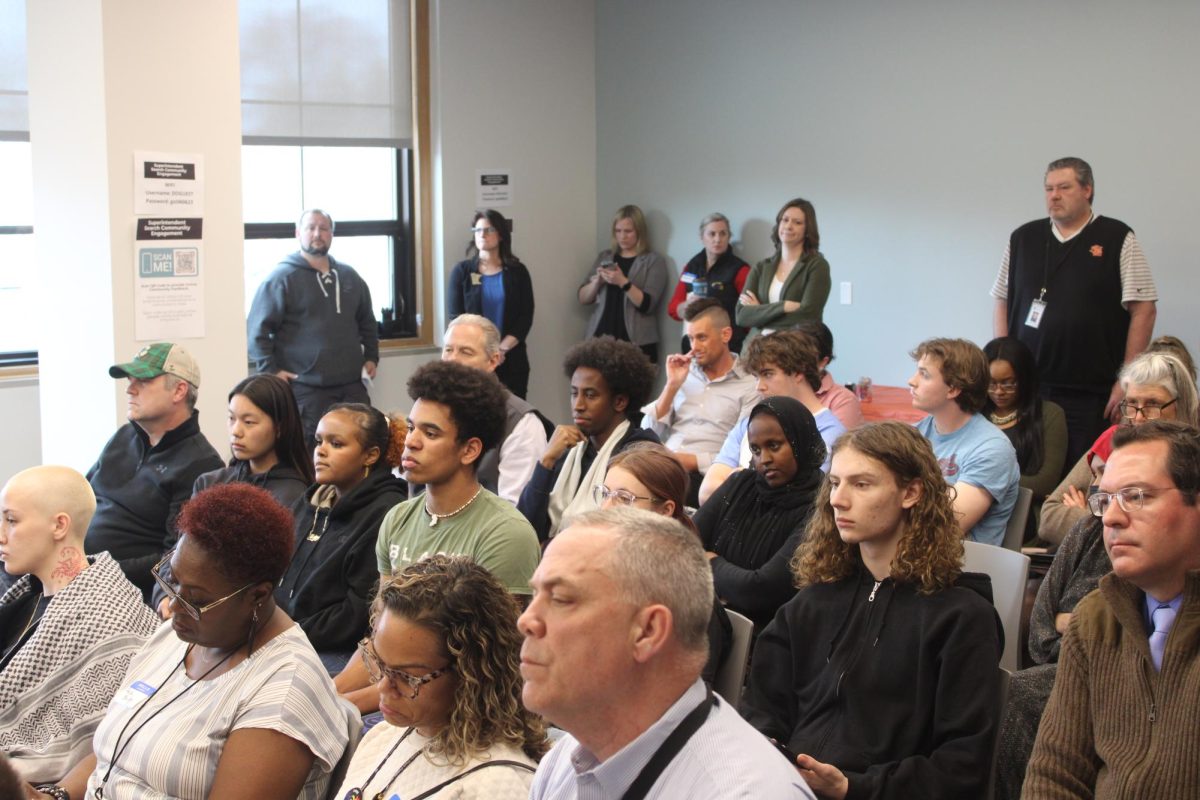
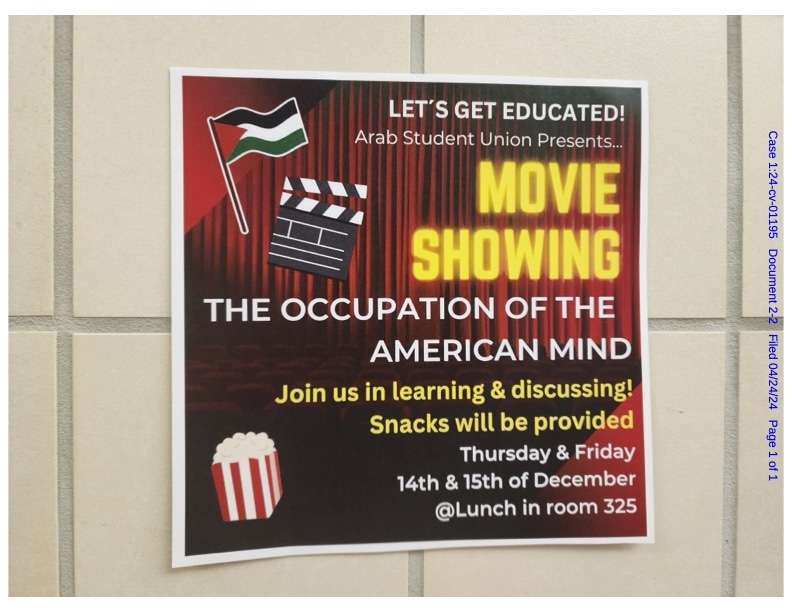
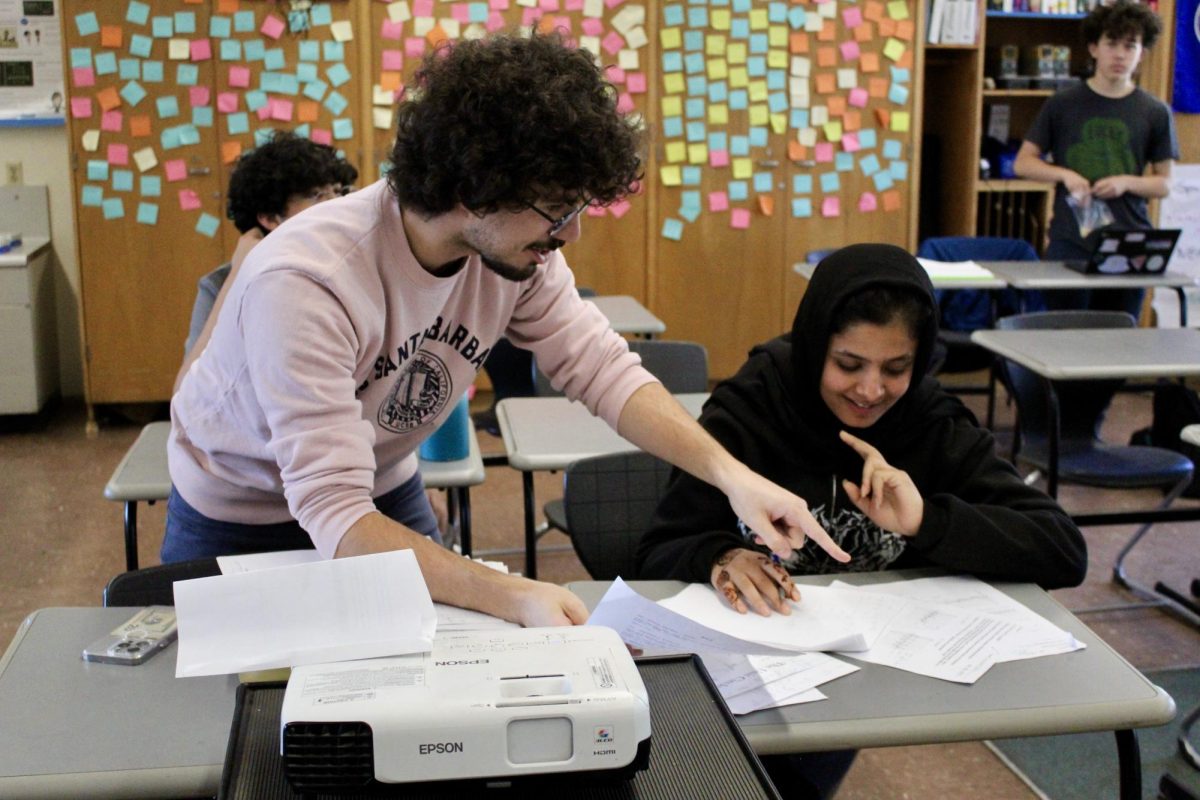
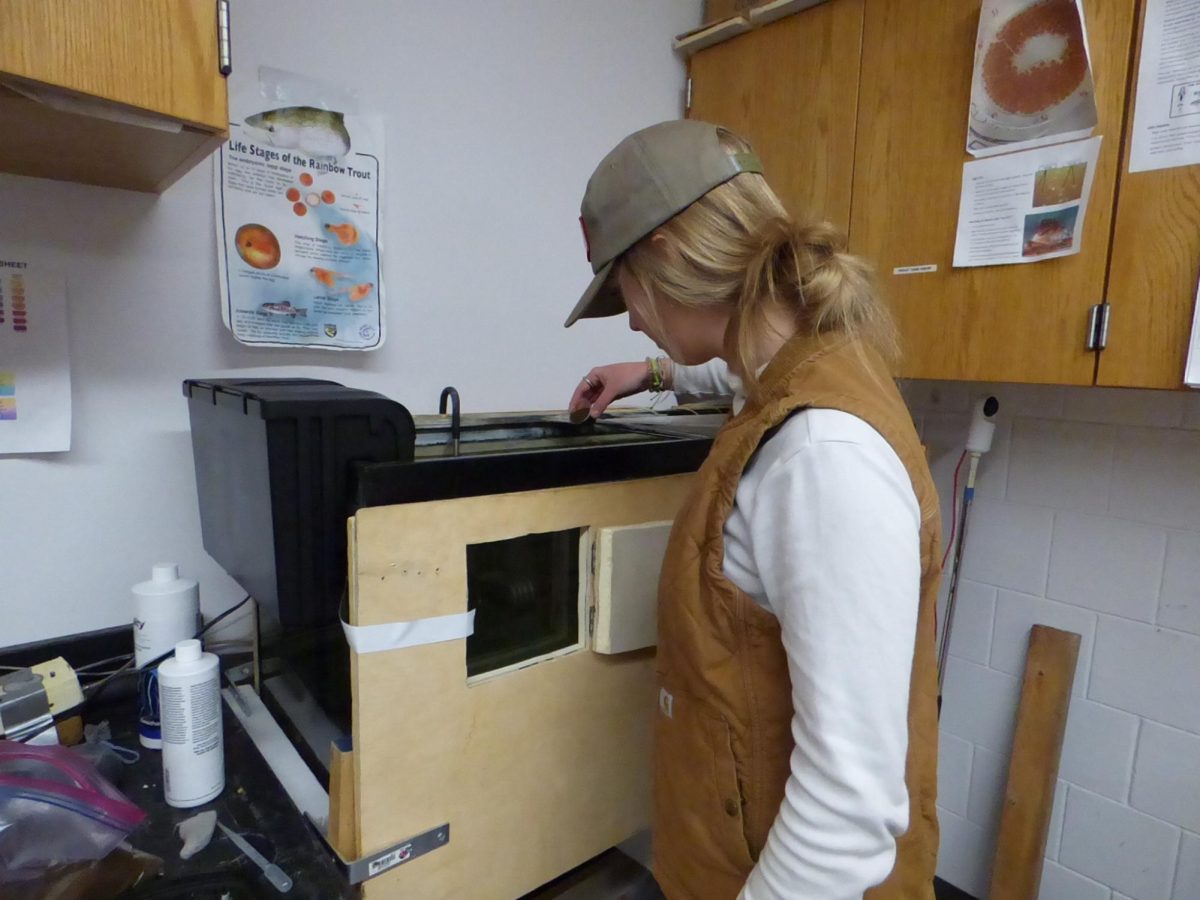
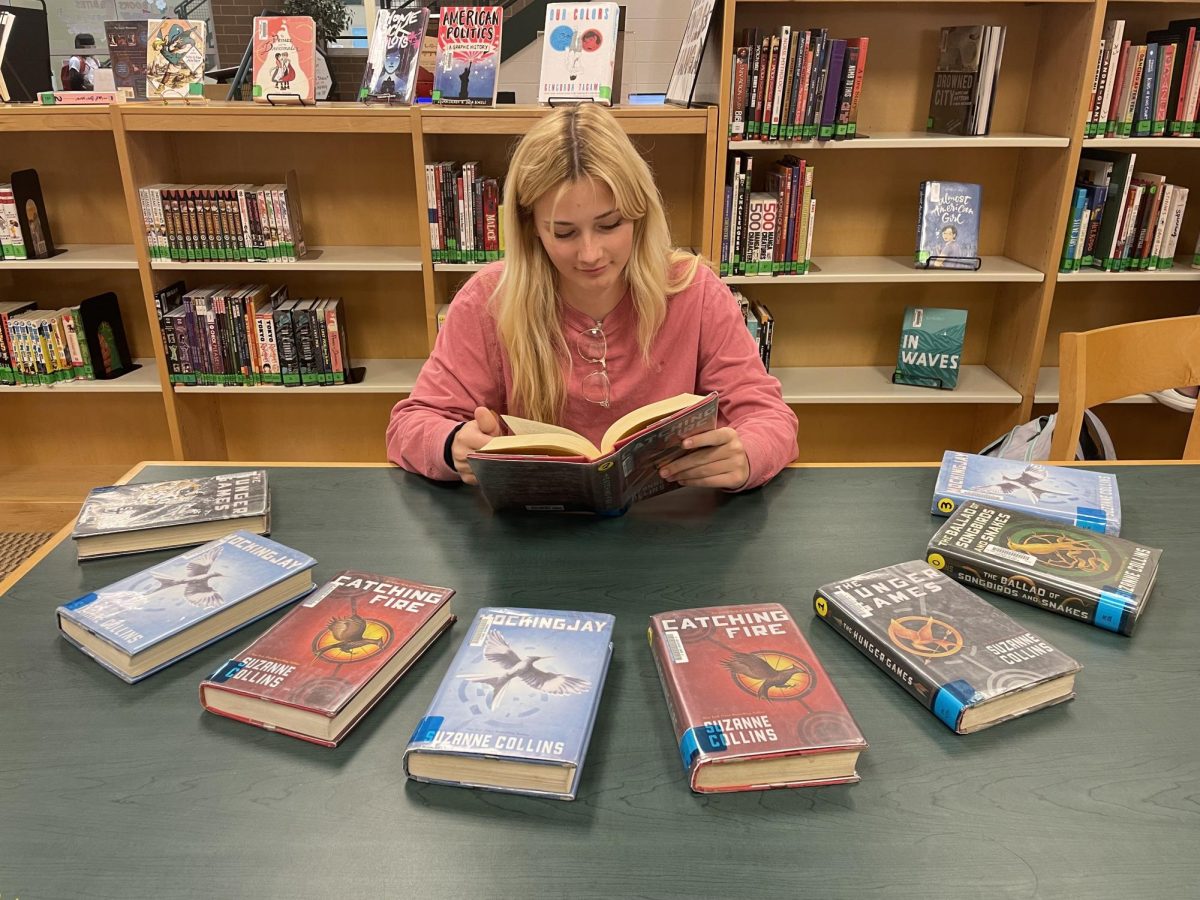

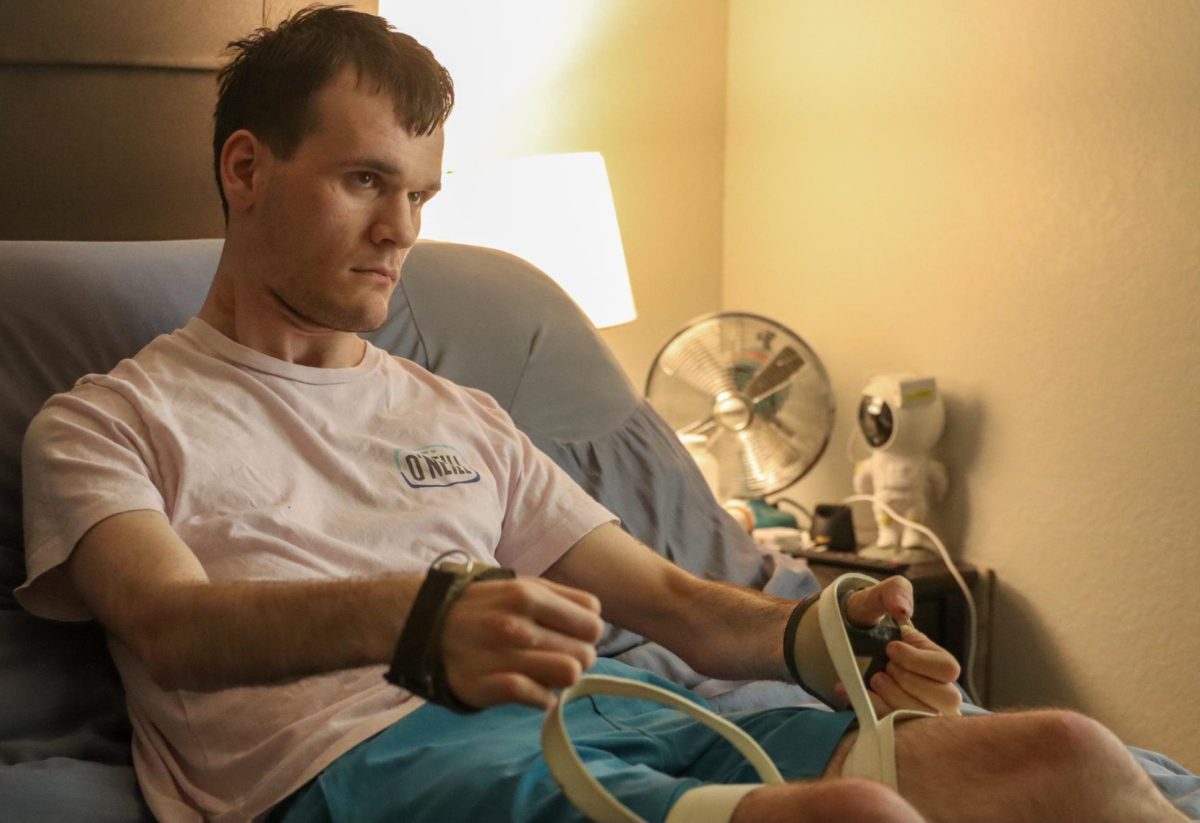



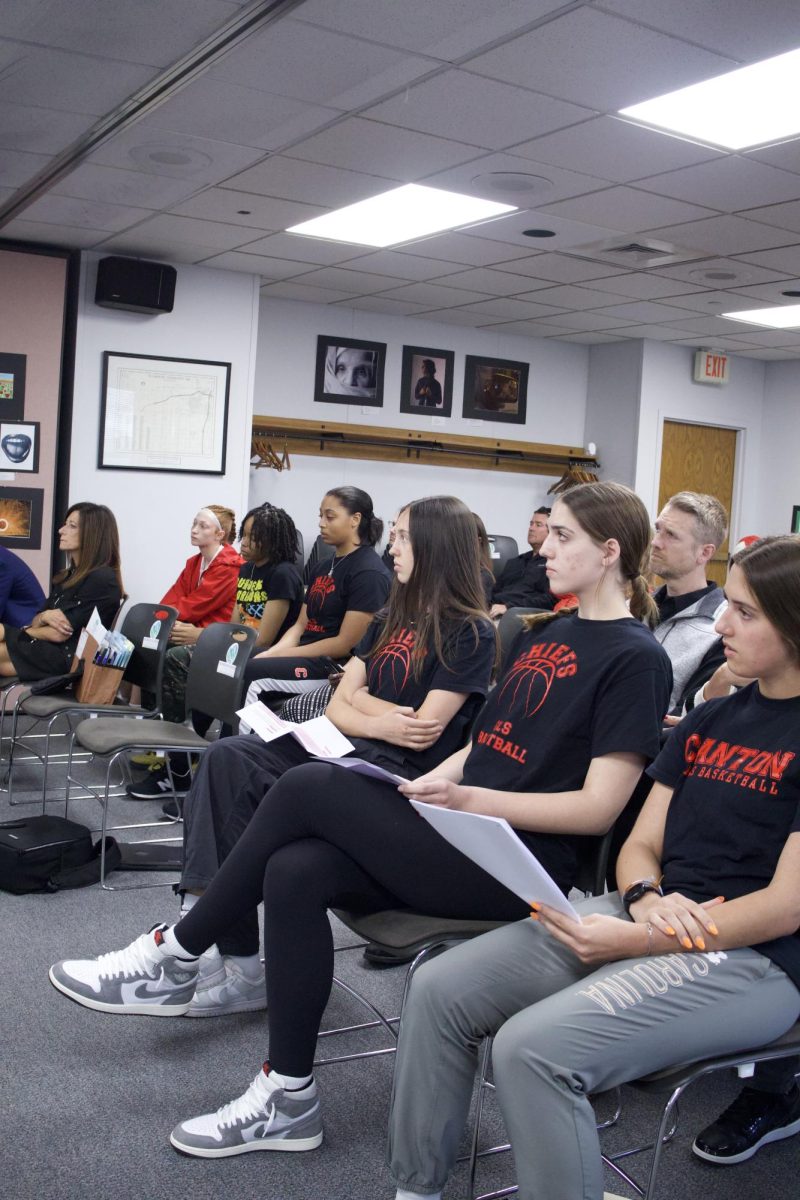

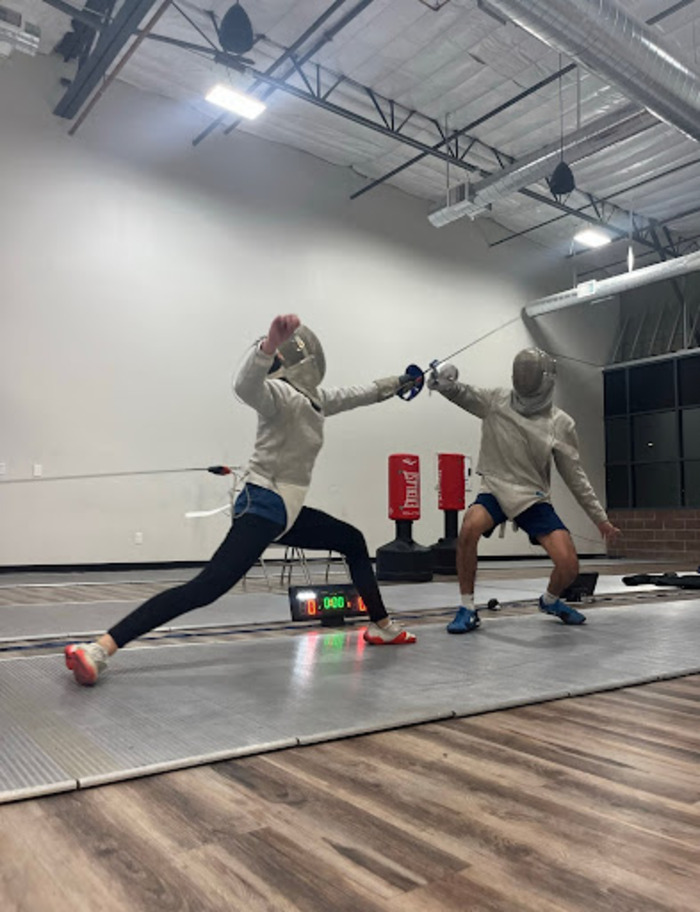
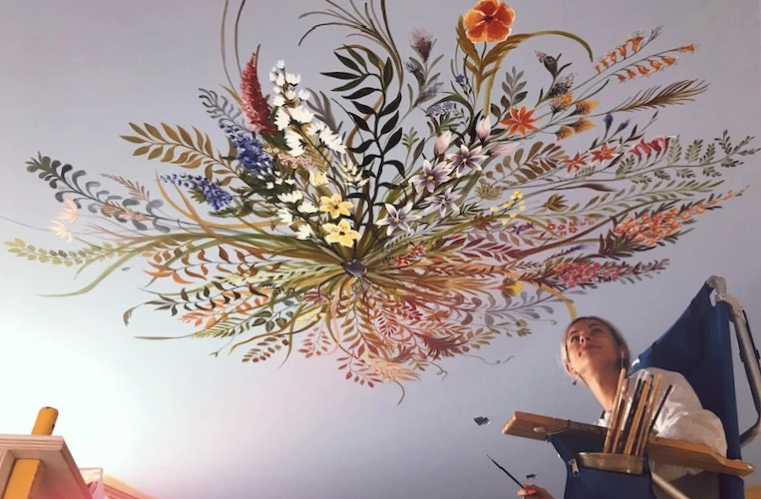
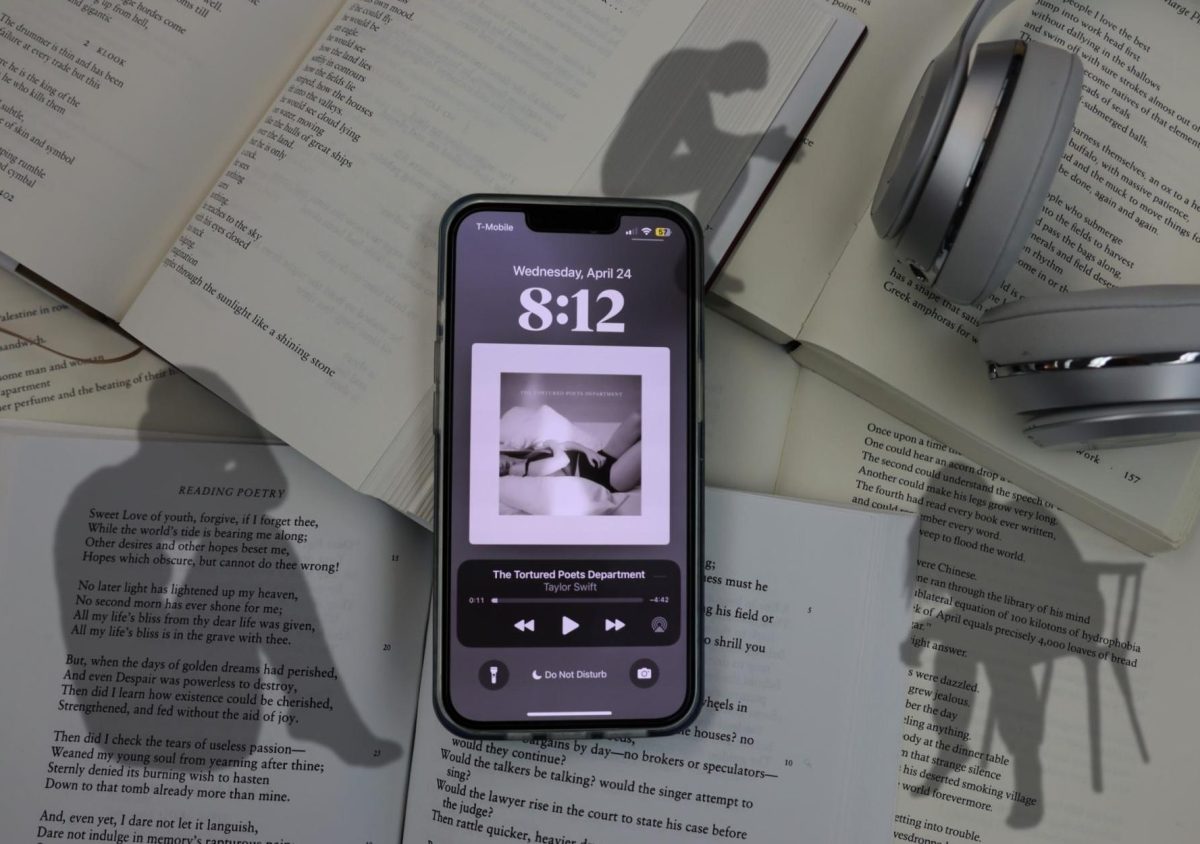
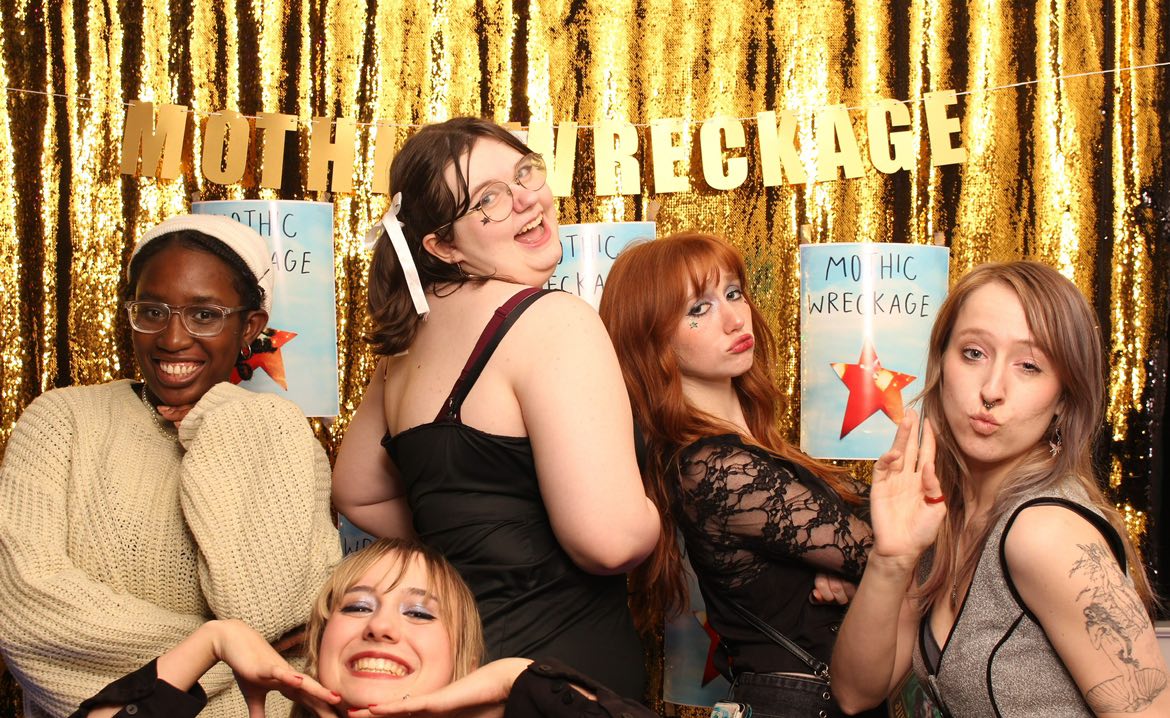













![IN THE SPOTLIGHT: Junior Zalie Mann performs “I Love to Cry at Weddings,” an ensemble piece from the fall musical Sweet Charity, to prospective students during the Fine Arts Showcase on Wednesday, Nov. 8. The showcase is a compilation of performances and demonstrations from each fine arts strand offered at McCallum. This show is put on so that prospective students can see if they are interested in joining an academy or major.
Sweet Charity originally ran the weekends of Sept. 28 and Oct. 8, but made a comeback for the Fine Arts Showcase.
“[Being at the front in the spotlight] is my favorite part of the whole dance, so I was super happy to be on stage performing and smiling at the audience,” Mann said.
Mann performed in both the musical theatre performance and dance excerpt “Ethereal,” a contemporary piece choreographed by the new dance director Terrance Carson, in the showcase. With also being a dance ambassador, Mann got to talk about what MAC dance is, her experience and answer any questions the aspiring arts majors and their parents may have.
Caption by Maya Tackett.](https://bestofsno.com/wp-content/uploads/2024/02/53321803427_47cd17fe70_o-1-1200x800.jpg)
![SPREADING THE JOY: Sophomore Chim Becker poses with sophomores Cozbi Sims and Lou Davidson while manning a table at the Hispanic Heritage treat day during lunch of Sept 28. Becker is a part of the students of color alliance, who put together the activity to raise money for their club.
“It [the stand] was really fun because McCallum has a lot of latino kids,” Becker said. “And I think it was nice that I could share the stuff that I usually just have at home with people who have never tried it before.”
Becker recognizes the importance of celebrating Hispanic heritage at Mac.
“I think its important to celebrate,” Becker said. “Because our culture is awesome and super cool, and everybody should be able to learn about other cultures of the world.”
Caption by JoJo Barnard.](https://bestofsno.com/wp-content/uploads/2024/01/53221601352_4127a81c41_o-1200x675.jpg)





